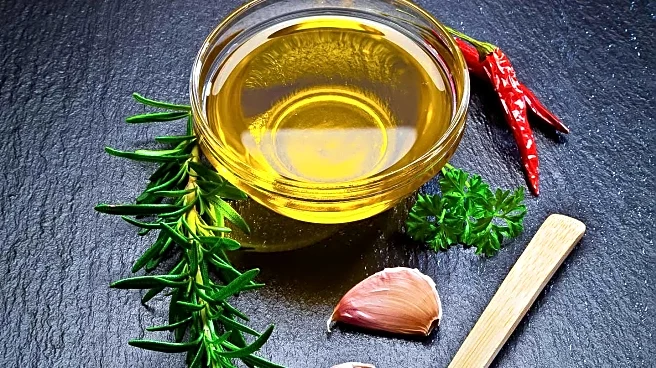What is the story about?
What's Happening?
Chefs are increasingly choosing alternative oils over olive oil for various cooking techniques due to differences in smoke points and flavor profiles. Olive oil, while popular, has a lower smoke point, making it unsuitable for high-heat cooking methods like frying and searing. Instead, chefs are turning to oils such as canola, avocado, and grapeseed, which can withstand higher temperatures and provide a cleaner finish. These oils are also favored for their neutral flavors, which do not overpower dishes. Olive oil remains a staple for dressings and sautés, but culinary professionals emphasize the importance of selecting the right oil for specific cooking needs to enhance both flavor and texture.
Why It's Important?
The choice of cooking oil can significantly impact the taste and quality of food, influencing culinary practices and consumer preferences. As chefs experiment with different oils, they can offer more diverse and flavorful dishes, potentially affecting restaurant menus and home cooking trends. The shift away from olive oil for certain techniques highlights the importance of understanding oil properties, which can lead to better cooking outcomes and more informed consumer choices. This trend may also drive demand for alternative oils, impacting agricultural production and market dynamics.














